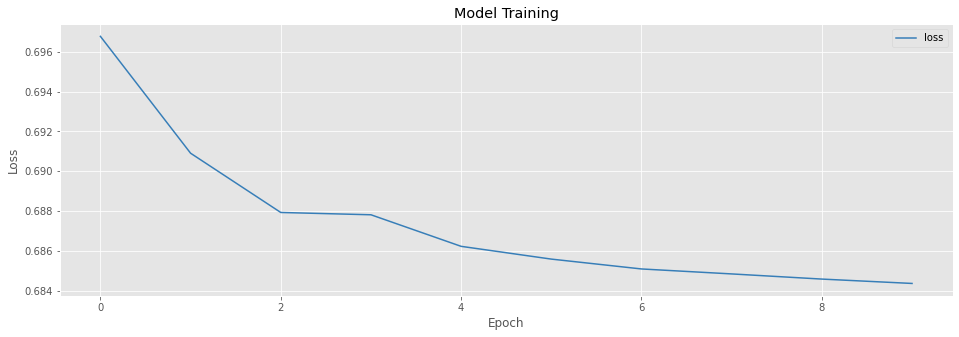 MLnext Framework#
MLnext Framework#
MLnext Framework is an open source framework for hardware independent execution of machine learning using Python and Docker. It provides machine learning utilities. The corresponding Python package is called mlnext-framework. MLnext Framework belongs to a solution portfolio for the Digital Factory now to realize Data collection, storage, and evaluation.
Digitalization is posing numerous challenges for production — but above all, it provides countless opportunities for increasing productivity and system availability. To ensure that you benefit from the advantages of digitalization as quickly as possible, we will provide you with needs-based support — from installing simple stand-alone solutions to comprehensive digitalization concepts.
The Digital Factory now is based on the following four fields of activity:
Data collection, storage, and evaluation
Data transportation
Data security
Data usage
The four fields of action provide you with various solutions, from data acquisition to data utilization. Each individual solution will not only be tailored to your particular requirements; the fields of action can also be combined in any way or considered individually. Regardless of which path you are taking toward the Digital Factory, we will be happy to support you during the next steps.
To help you to meet today’s digitalization challenges and implement opportunities profitably, our solutions provide the following added values:
Scalability — tailored to your requirements
Tested and validated — in our own in-house production facilities
Ready-to-use — benefit from the digital transformation today
With target-oriented consultation, we will find the right solution for your Digital Factory together. Let us take on the challenges of digitalization and leverage its opportunities together.
Installation#
Install this package using pip:
pip install mlnext-framework
Modules#
The MLnext Framework consists of 7 modules:
import mlnext.data as data # for data loading and manipulation
import mlnext.io as io # for loading and saving files
import mlnext.pipeline as pipeline # for data preprocessing
import mlnext.plot as plot # for data visualization
import mlnext.score as score # for model evaluation
import mlnext.anomaly as anomaly # for anomaly interpretation
import mlnext.utils as utils # for utility functions
# hint: all functions can also be accessed from the root module
import mlnext
Example#
import tensorflow.keras as keras
import numpy as np
from numpy.random import random
import mlnext
# Create a model
model = keras.Sequential([
keras.layers.Input(2),
keras.layers.Dense(100, activation='relu'),
keras.layers.Dense(2, activation='softmax')
])
# Generate data for example
X_train, X_test = random((100, 2)), random((100, 2))
y_train, y_test = random((100, 1)) > 0.5, random((100, 1)) > 0.2
# Plot signals
mlnext.setup_plot()
mlnext.plot_signals(x=X_train, y=y_train)
mlnext.plot_signals(x=X_test, y=y_test)


# Compile and train
model.compile(optimizer='adam', loss='sparse_categorical_crossentropy',
metrics='categorical_accuracy')
history = model.fit(X_train, y_train, epochs=10)
# Visualize training
mlnext.plot_history(history.history)
Epoch 1/10
4/4 [==============================] - 0s 4ms/step - loss: 0.6968 - categorical_accuracy: 0.8800
Epoch 2/10
4/4 [==============================] - 0s 3ms/step - loss: 0.6909 - categorical_accuracy: 0.0400
Epoch 3/10
4/4 [==============================] - 0s 3ms/step - loss: 0.6879 - categorical_accuracy: 0.0000e+00
Epoch 4/10
4/4 [==============================] - 0s 3ms/step - loss: 0.6878 - categorical_accuracy: 0.0000e+00
Epoch 5/10
4/4 [==============================] - 0s 3ms/step - loss: 0.6862 - categorical_accuracy: 0.0000e+00
Epoch 6/10
4/4 [==============================] - 0s 3ms/step - loss: 0.6856 - categorical_accuracy: 0.0000e+00
Epoch 7/10
4/4 [==============================] - 0s 3ms/step - loss: 0.6851 - categorical_accuracy: 0.0000e+00
Epoch 8/10
4/4 [==============================] - 0s 3ms/step - loss: 0.6848 - categorical_accuracy: 0.0000e+00
Epoch 9/10
4/4 [==============================] - 0s 3ms/step - loss: 0.6846 - categorical_accuracy: 0.0000e+00
Epoch 10/10
4/4 [==============================] - 0s 3ms/step - loss: 0.6844 - categorical_accuracy: 0.0000e+00

# Predict labels
y_train_pred = mlnext.eval_softmax(model.predict(X_train))
y_test_pred = mlnext.eval_softmax(model.predict(X_test))
# Evaluate model
print(mlnext.eval_metrics(y_train, y_train_pred))
print(mlnext.eval_metrics(y_test, y_test_pred))
print(mlnext.eval_metrics_all([y_train, y_test], [y_train_pred, y_test_pred]))
{'accuracy': 0.56, 'precision': 0.56, 'recall': 1.0, 'f1': 0.717948717948718, 'AUC': 0.5}
{'accuracy': 0.82, 'precision': 0.82, 'recall': 1.0, 'f1': 0.9010989010989011, 'AUC': 0.5}
{'accuracy': 0.69, 'precision': 0.69, 'recall': 1.0, 'f1': 0.8165680473372781, 'AUC': 0.5}

